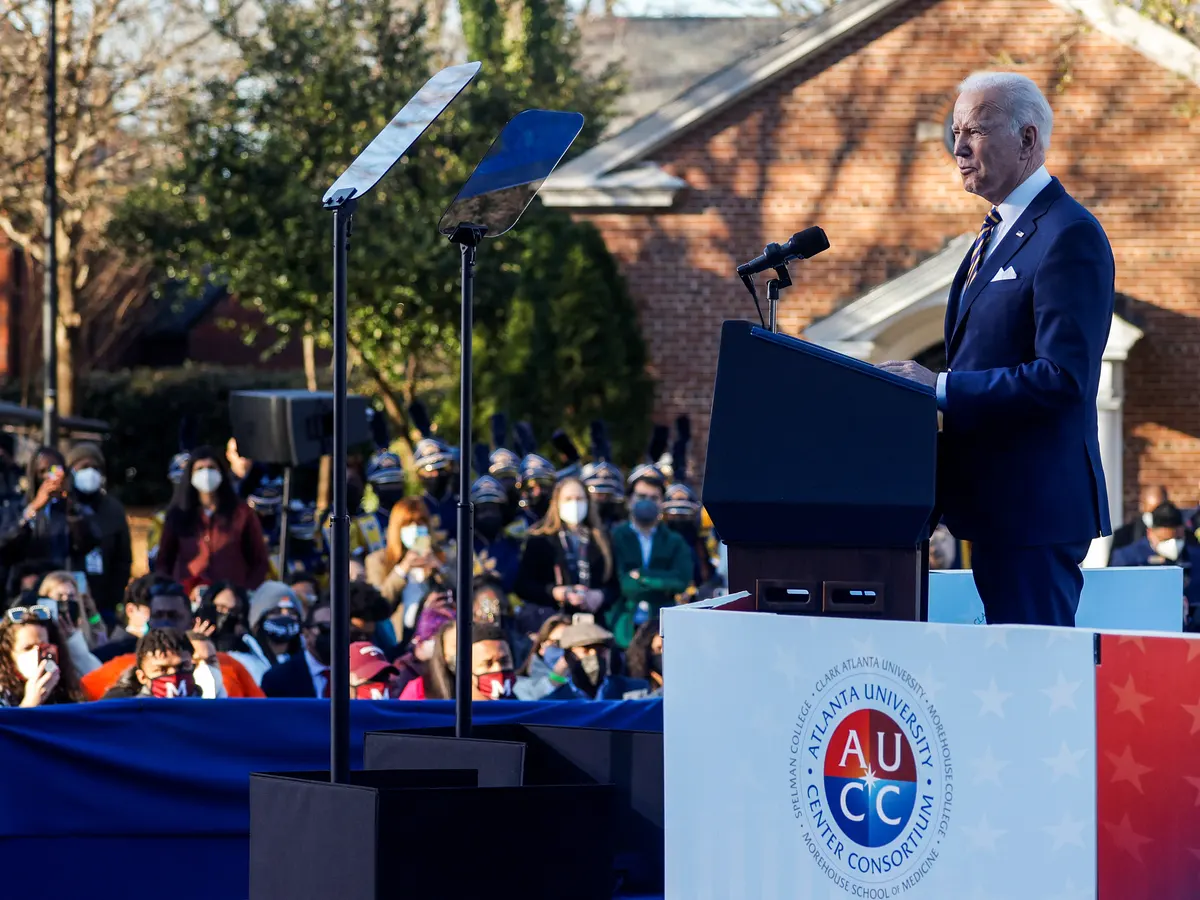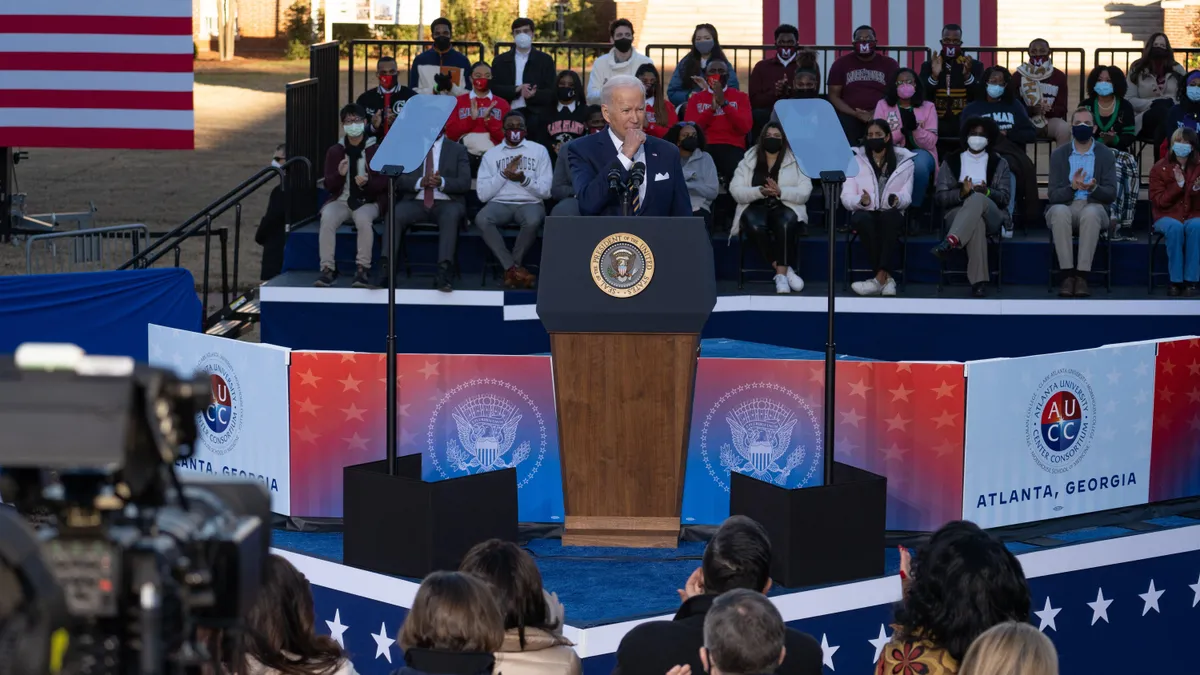The White House reaffirmed President Biden‘s commitment to deliver the commencement address at Morehouse College on May 19, despite objections from some faculty and students regarding his Israel policies.
Biden’s speech at the historically Black men’s college in Georgia remains scheduled, with no plans for changes, according to White House spokesperson Karine Jean-Pierre. Morehouse College spokesperson Jasmine Gurley also confirmed that preparations for Biden’s address are proceeding as planned.
Dissenting voices within the Morehouse community express concerns over Biden’s visit, labeling it as a political maneuver.

Senior student Miles Ross criticized the decision, highlighting strong sentiments among students regarding the ongoing conflicts in Palestine, Gaza, and Congo.
The prospect of Biden addressing such issues during his speech could invite significant scrutiny and criticism, according to Ross.
Nevertheless, Biden’s visit to Morehouse College aligns with his efforts to consolidate support among Black voters ahead of the upcoming presidential election.
Vice President Kamala Harris has initiated a national tour aimed at engaging Black voters, particularly men, to promote the administration’s policies.
Recent pro-Palestinian protests on university campuses nationwide reflect growing dissent over U.S. policies towards Israel.
Some Morehouse faculty and students have urged the college to rescind Biden’s invitation due to his administration’s unwavering support for Israel amidst escalating tensions in Gaza.

Despite objections, Tom Perez, a senior adviser to Biden, underscored the President’s connection with Morehouse’s legacy, particularly with civil rights icon Rev.
Martin Luther King Jr. Perez emphasized Biden’s involvement in the civil rights movement and reiterated the administration’s commitment to engage with Arab and Muslim communities across various states.
As preparations for Biden’s commencement address continue, tensions persist within the Morehouse community over the invitation, reflecting broader divisions regarding U.S. foreign policy in the Middle East.





